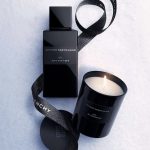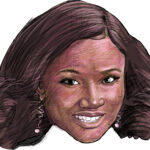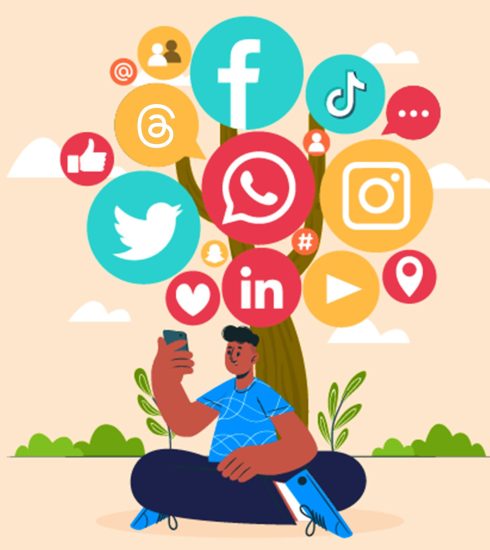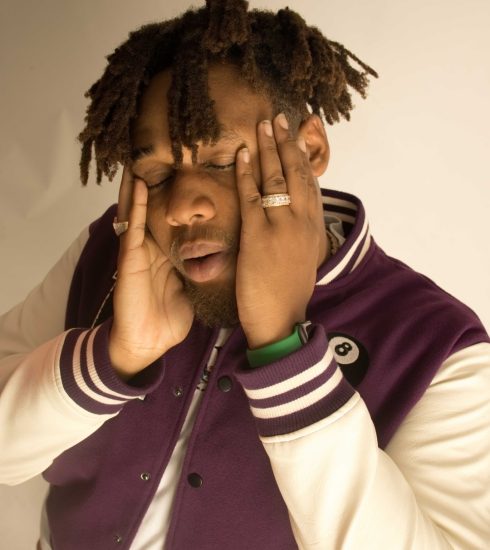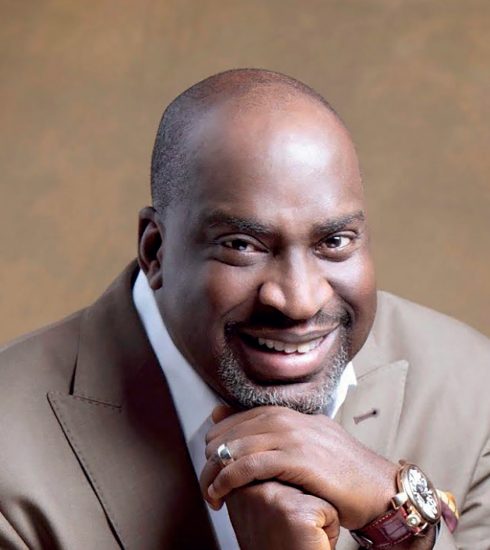Frankly Speaking.. Frank Edoho Returns To The Hot Seat
In the early 2000s until the decade that followed, a reality competition TV show ensured that Nigerians were riveted to their seats whenever it came on. First aired on 8 October 2004, Who Wants To Be A Millionaire (WWTBAM) wasted no time in winning the audience’s attention and sustaining it.
The franchise game show that had suspense, humour, and incredible wit all rolled in one, would go on to maintain its status as one of the most intriguing TV shows. One person however, made it undefeated… Frank Edoho.
Although the show ended up receiving an axing which resulted in a five-year hiatus, the fire that Frank Edoho had ignited was still very much alit. Fast forward to 2022 and just like other reality competition TV shows lately, WWTBAM is making a return. DOWNTOWN’s editor, Onah Nwachukwu, and writer, Kehindé Fagbule, sat with the man in the centre of it all, Frank Edoho, to discuss the journey that saw him become the youngest host of the global franchise worldwide at the time that he ignited the fire, and his plans for rekindling it as the show makes a return in a very different era.
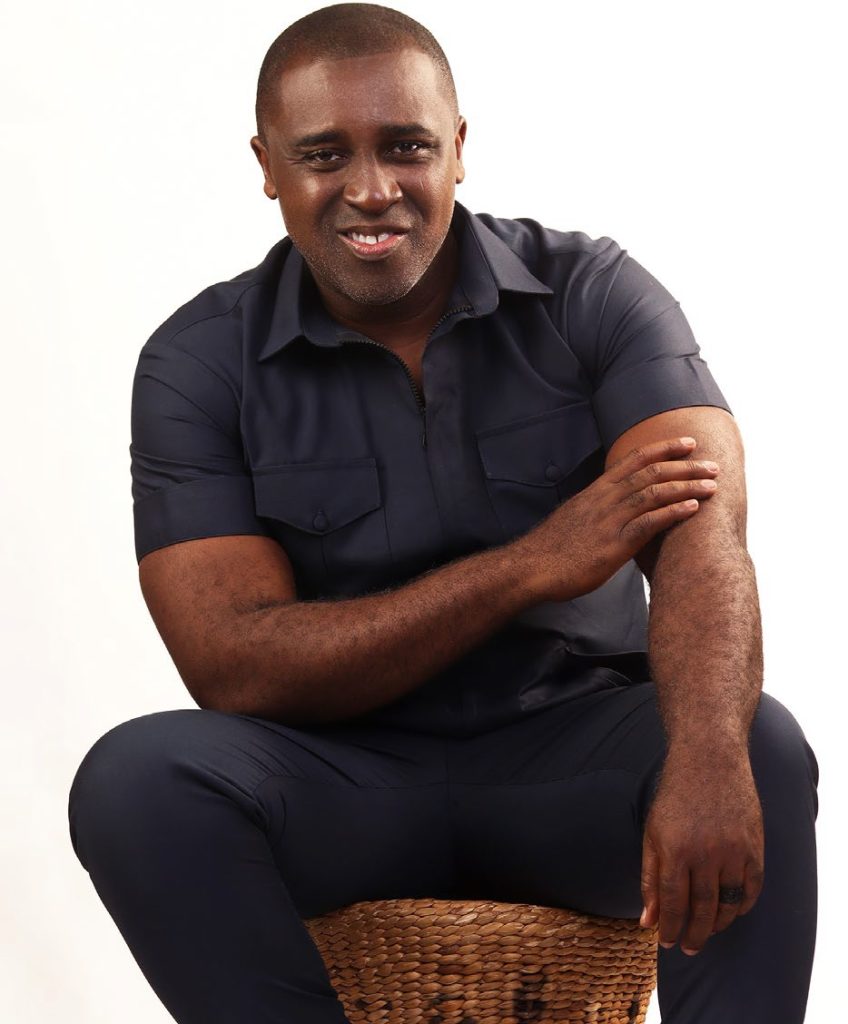
You started a career in Broadcasting on the radio. Tell us about that.
It started many years ago in Calabar when I was in the university; 1991 to be exact. I loved listening to the radio, because of the music, but more importantly, I was drawn towards radio presentations. When I was in secondary school, I used to be embarrassed because my mates used to laugh at me for having a baritone while they all had high-pitched voices. So when I realised that the narrative was that people loved baritone voices in movies, I decided to take a stab in broadcasting. When I got into the university in Calabar, I went for a radio audition; it was an AM station (amplitude modulation). They gave me a script to read and I read like three lines, then I heard banging on the glass, and they told me to come out. I was like “wow! I’m this terrible,” then they looked at me and said, “where the hell have you been? Start on Monday.” That was how I started working while going to school, I was studying animal science. I was doing it side by side. I had a show called Blockbuster where we talked about entertainment and stuff like that. So I did that until I made a foray into TV, NTA Channel 9. At the time, they didn’t have a Saturday Breakfast show, so a group of young guys started it, and I went to do marketing for them. They heard my voice, so when the top presenter travelled, they said maybe I could be a sub. I did that, then they asked me to come back and that’s how my TV journey began. All for free.
When I graduated and wanted to come to Lagos, I told my guys in Calabar that I was going to Lagos to become a broadcaster there. I wanted to write a column, be on the radio and TV. They laughed at me and said in Lagos, they do things in cliques—which is true.
So I was like “you know what, I will go and form my own clique in Lagos.” I didn’t know what I was doing though. I came to Lagos, went to DBN TV, and told them I wanted to do an audition.
They asked, “why should we give you an audition?” I replied, “I am a broadcaster and besides, I work with Encomium magazine as a columnist.” I didn’t work for Encomium magazine. I had an article I had written, so I showed them and said it was going to be printed next week. They were impressed when they read it so they gave me an audition. After the audition, I went to Encomium magazine and told them I’m from DBN TV [laughs]. Because I heard about the cliques, I had to play the game. I showed them my article and they were impressed as well.
They told me that I couldn’t get on Encomium, but referred me to another magazine called Reel Stars; Azu Arinze was the editor then. So my article got published on that and they asked me to write more. But since it didn’t get traction, I left the writing thing and concentrated on DBN TV; they had employed me. I stayed there for a year and learned all I could, how to be a cameraman, editor, I used to sleep in the office for like two to three weeks—I wasn’t married then so it was easier.
When I left DBN TV, I went to Radio Nigeria for an audition. They hired me the next day and sent me on a training course at the FRCN training school where I did the basic announcers course. There, you learn all kinds of things, how to be a newsreader and everything. I came back, stayed at Radio Nigeria for four years, and did all kinds of programs, including the night shift popularly called the graveyard shift. The DJ at the radio station listened to me, he was impressed and told me about a quiz program he watched in the UK and wants to do something like that in Nigeria. The show was Who Wants To Be A Millionaire, but he wants to call his ‘Win A Million.’ This was in 2002. He told me he needed a presenter, so we did it.
We did it like WWTBAM, but with just one lifeline. But I did the tension so well on the radio that the suspense was intense, one man blurted out “tell me or I will die!” [laughs]. All of a sudden, I heard that there was a WWTBAM audition, a TV show this time. They called me for the audition but I couldn’t go because I was doing something for Closeup at the time, so I missed the first one. They decided to do another that I then went for. I was the smallest amongst them; people like Dan Foster, Jaiye Aboderin, Sunday Irabor, Jones Usen, the icons of broadcasting. I just said let me go and flex. Because I had watched the South African version of the show on DStv with my friends in 2000, I knew what to expect. Along with the fact that I hosted the Win A Million show on TV in 2002 and then another two years later, I was at a WWTBAM audition. When it was time for me to audition, everyone was tired because I was the last. They took the script from me and were like “you know what, just present.” I was like I needed the script but they said no, just do it. So I remembered the South African one, with the experience I had with Win A Million, so I just did something. I was even stuttering and I heard a loud voice at the back asking me to continue.
Two weeks later, they started calling me to say “we are considering you with five other people.” The next day, they called me to say “you guys are down to three.” I told them, “look, don’t waste my time. If you call me next, that means I’m getting it. God is telling you something and you are just stubborn. Tell the two other people off, let’s get to work.”
So then a trait you’d say you have is being confident?
I think it is being foolhardy. I don’t have anything to lose. But you know what, I will be noticed at the end of the day. I told them “hey come on, let’s do this.” The next day, they called me and said “you’re it! Come let’s have a meeting.” We had the meeting, and they decided to put me on 6-month probation to host the program.
Did you have training for it or did you only depend on your experience watching the South African version?
Both ways because you have to know the show for you to interpret the best way to present it for people to find you acceptable. Also, I feel broadcasting is what I was meant to do because even on my own, I’m watching presenters and I’m always critiquing or learning from them like “oh he shouldn’t have done this. Why is he doing that? What is that body language all about?” I would rewind it and watch it over again—my wife is sick of it.
In terms of keeping people tense, how did you manage to get it to a place where you keep people that tense?
There are many factors. The biggest is that they are playing for a huge sum of money, so already there is tension for the person. And WWTBAM is a show that if anybody watches, they root for the contestants. Whatever the contestants go through, they (the audience) go through. So that explains the suspense. Now all I have to do is just apply a bit of restraint here and know how to release the answer depending on the circumstances, and I learnt that from the radio show, Win A Million.
The questions are asked, the answers pop up, you then know the answer. How do you keep your poker face when you’ve seen it to not give anything away to the contestants?
I guess I’m a good card player [laughs]. I studied from Chris Tarrant, who was the UK presenter before Jeremy Clarkson came on. That is the defining moment of how you carry the show. That is the pivotal moment, you have to do it right. Some contestants say outlandish things. Like someone came and I asked him what his hobby was, and he said, “intellectual discourse.” I said, “that means you’re very knowledgeable,” he replied “I like to think so.” The second question comes: what is another name for Father Christmas? So the options were Santa Claus, your majesty, and two other options. He chose ‘your majesty’. This was just the second question and if you miss it, you’ll leave with nothing. So I was trying to persuade this guy but he kept giving me the arrogant look that says “we don’t have all the time in the world.” I asked if he wanted to use a lifeline because the audience was eager to help him out. He declined and stuck with ‘your majesty’ as his final answer. So now, I can’t just let it out because of how it has built up. The guy said his hobby was intellectual discourse, so that means he should be intelligent but obviously he’s too arrogant. So I wore my poker face and asked him, “how do you address a king?” He said, “your majesty.” I knew the audience was watching with a reaction on their face, I know viewers at home would have that reaction as well. Then I finally let it out. There was silence for a bit and then I shook his hands and he walked away. People were waiting to see, so I had to cover it up. So I said something like, “he came here, his hobby was intellectual discourse, and now his intelligence is ‘off course’.” I have to do things like that at the right point.
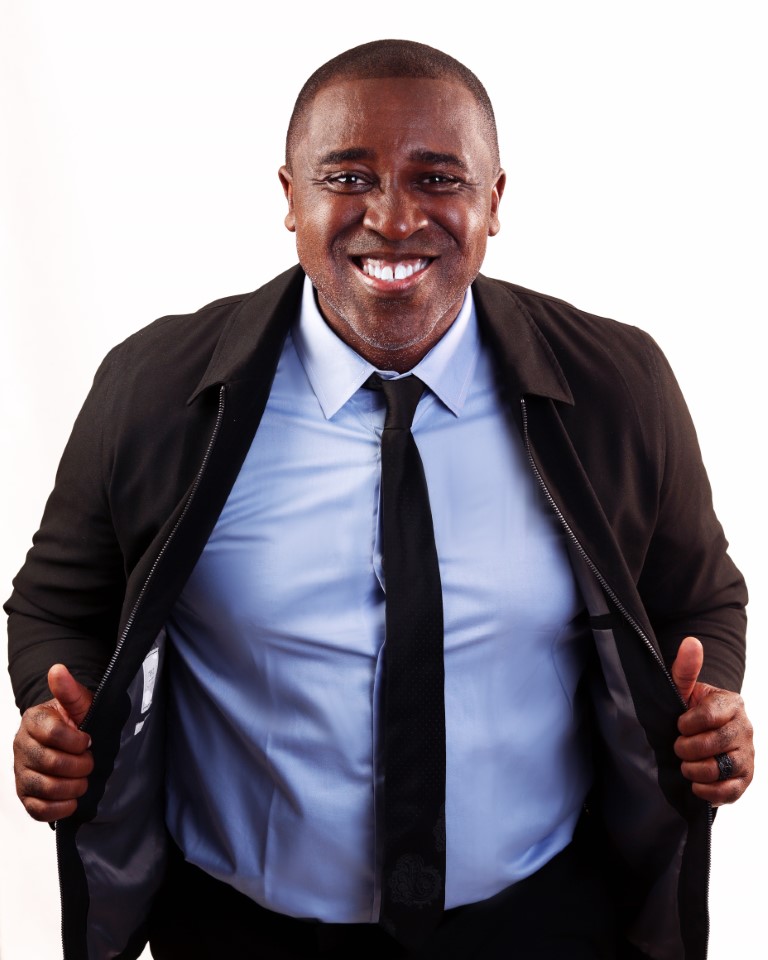
Are there writers feeding you? Is it scripted?
One fun fact, I don’t do teleprompters. Never did in 13 years of presenting the show.
Apart from teleprompters, do you have intel on the contestants?
I have it written out because all the contestants have a bio sheet they’ve filled out. You know during the fastest fingers bit, there’s no chair in the middle. All of a sudden, when somebody wins, I shake their hands and say “alright, you win, do you want to play?” And then we go to sit; there’s now a chair there. How does that happen? We stop. After shaking their hands, we’ll get the chair to the centre stage, I’ll then be handed the contestant’s bio and I will get to know them briefly before we start playing. They edit it and make it seamless. But I have the information already. Sometimes if I forget, I have it written down.
This information we get from contestants has to be given in small measure but condensed. For instance, I go “hello everybody, this is Tammy. Tammy runs a crochet school where she uses knitting to do bags and clothes, we will talk about that later. Right now she’s here with her twin sister and she assures me that they are not at loggerheads. A round of applause for her…” So I have covered a bit of it, now I’m holding the salient points for later if she goes far. If she doesn’t go far, then there’s no need for people to know. As you’re winning more, I’m putting those things for people to get to know you more, so that when you now win, it will look as if it’s a microcosm of your journey. They’re taking that journey with you, seeing your past, and then wondering what’s going to be your future, on this show. And they want to be a part of it.
In an interview you granted at the time, you said the showrunners didn’t meet your demand to be promoted to the position of an executive producer having been with them for so long. Tell us exactly what happened.
I asked to be an executive producer because for one, I had done the show for 13 years, so I felt that it was time for me. I couldn’t keep presenting this show that I did basically like mine anyway. So I needed a bit of the revenue but they weren’t open to it. I said, “okay, let it not look as if I abandoned the ship when the major sponsor pulled out.” I said if a new sponsor comes in, I want a part of the revenue.
And already, they were telling me, no. We were still negotiating then all of a sudden, one beautiful Saturday morning, PUNCH now reports that ‘Frank has been dropped from WWTBAM.’ That news broke out because they had a new sponsor, they were supposed to unravel the sponsor, I was supposed to be there but I wasn’t because we were still talking. When they were asked “where is Frank?” by reporters, instead of saying “Frank is around” or being diplomatic, they responded, “actually, I don’t think Frank is gonna host the show. As a matter of fact, we are going to bring a younger presenter to take his spot.” And ironically, I was the youngest presenter of WWTBAM worldwide. This show is for veterans in broadcasting to come in and host it, but they gave me a chance and I tried to learn, grapple with it and everything, and I had 13 years to make a good job of it, you know. They said they were going to bring a younger presenter and that is what got to me.
And it became a thing on Twitter. That time I wasn’t a Twitter savage, so people were insulting me and gloating over the headline. Well, see I don’t blame my former company, I blame PUNCH because the person told them that “hey Frank is still with us, but I don’t think he would…” he was just expressing the result of our conversation which he shouldn’t have. What they got was that Frank was still working on the show, but was dropped from presenting, so they ran with the news.
Seeing as it didn’t work out in terms of you being an executive producer at the time. Now that you’re back, has it changed? Are you now going to be an executive producer?
No, no. The origin of my wanting to be an executive producer in the former WWTBAM is that I did it for 13 years as a presenter. Now if you are a presenter on a show like WWTBAM, the next thing you should be thinking of is having an executive producer position because there are many executive producers. It is a normal thing and I feel like if I’m presenting a show as huge as WWTBAM, we have to start sticking to world standards. So I decided to make those moves but they cut it short.
Now for this new dispensation, these guys come, they meet me “hey we have this show that you’re gonna like, we want you to be the presenter.” I was on the verge of turning it down because my position as the former presenter of WWTBAM is a gift and also a curse because if you come with any show that is not of that cadre, I can’t take it.
You took The Price is Right though…
I took The Price is Right, but they couldn’t get it off the ground. The sponsorship was difficult. I did a premiere show and we brought sponsors and everything but I don’t know what happened. I was signed for two years, the two years went by and we couldn’t just get it off the ground. Well, I accepted that, I was signed for two years. It was my friend that owned the show and I didn’t get a dime in those two years but hey, he’s my friend.”
Do you then regret not trying to patch things up with your old employers?
I did WWTBAM for 13 years. If somebody doesn’t value my 13 years in something, I have no regrets at all. I left.
So what have you been up to since then?
Production. I prefer being behind the camera than in front of it. I’m an architectural photographer. I did it because my wife is an interior designer and she was taking pictures with her phone. Then, before the end of WWTBAM, I studied cinematography. That’s what I’ve always been interested in, even as a kid, I was reading books on how to be a director and that’s why I know all these great directors. So I went back to my love, production. I started producing documentaries and corporate videos for people.
I wanted to go to film school in New York so that I can be a director, but it was halted because I saw that the corporate industry needed some video that looked good. Then I trained to be a colourist.
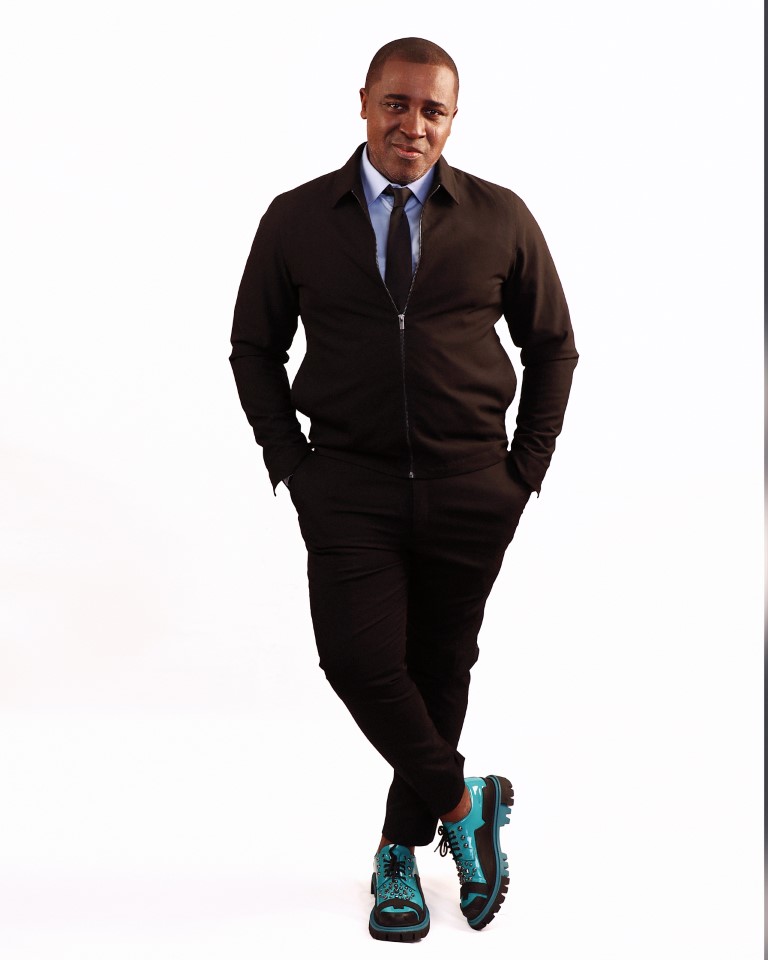
I’m a certified black magic design colourist and cinematographer, a gaffer, led lighting, I’ve been doing a lot of stuff like that. NIMASA This Week was a TV program. I was the producer for the advertising agency that had the contract to do it and we did it for two and half years. I was the producer, colourist on the project, and cinematographer. Tell us about the time you wanted to start a radio station. I own a radio station. As a matter of fact, my name is on the licence of one of these radio stations. So a while ago, I went to someone in government and they helped me get a radio licence in my name. But the problem was that the person that helped me decided to bring their brother on to be a part of the board, and too many cooks spoil the broth. So I abandoned it and handed the whole thing to them.
Podcasting is sort of like radio, do you plan to own a channel?
Thank you very much, I wanted to say it. If you give me a radio station, I will not take it.
So will you venture into podcasting?
Yes, I want to venture into podcasting but the problem I have with it is the guest. Now abroad, the roll call is expansive and vast. Here, how am I going to get Herbert Nwigwe or Tony Elumelu?
Let’s talk about your return. Were you aware that you had gotten the job or it was open to other potential hosts?
I never heard anything about it. It is just very uncanny because the previous week, someone called me and wanted the number of the people who used to hold the licence for WWTBAM. I said “I don’t know, I’ve not worked with them for like four years” and the guy said no, he just wanted the number. So I said, “okay, I have this guy there, I’ll give you his number.” Then I shared his number. The following week, someone called me and said “hey Frank, some people need to meet you about something.”
So I thought maybe it was for a production or an endorsement or an event. I suggested we talk on zoom and they said no, they need to meet. So I drove to Victoria Island, saw my friend there and two other guys. They said, “we have this TV show.” I was already preparing my speech on how to turn them down because I usually do that. Then they proceeded, “we have the licence.” And I knew it was an international show. I said, “alright, what is the name of this show?” They looked at themselves, did a prestige pause, and said, “you will not believe it. We are the owners of WWTBAM.” I asked, “why are you coming back to me?” And they replied, “if it ain’t broke, don’t fix it.” I didn’t believe it when we left the meeting, but they called me and I realised that it was real and so uncanny.
Speaking of that, are there any antics and new traditions? Or are we sticking to the old ones?
The show is a new show. First of all, it is 20 million Naira instead of 10. There are new aspects of the game. For instance, the host is a lifeline, so they can ask me for my answer to any question. That one already has a whole portal of interest that you can inspire from there.
We watched you for 13 years and reckon that people are now going to be familiar with some of your antics. How do you counter this?
Even for 13 years, they still couldn’t. When I did Teni’s video for Billionaire, when people knew it was not the real WWTBAM, they still felt the suspense. It’s going to be different. That ‘ask the host’ thing is going to be the main fame because if I don’t know, what am I going to do? [laughs].
Speaking of the show changing, there’s also a change in terms of media. We now have streaming platforms, and this is where young people are most of the time. What are the plans to have them engaged and invested in the show?
It is going to be everywhere, we are going to deploy all platforms possible to show the people what we’re doing this time. We’re going to be on social media and everything. Speaking of young people’s involvement, let the questions be right up the younging’s ally—questions that they will know the answers to.
That automatically gives them a large involvement in the whole thing.
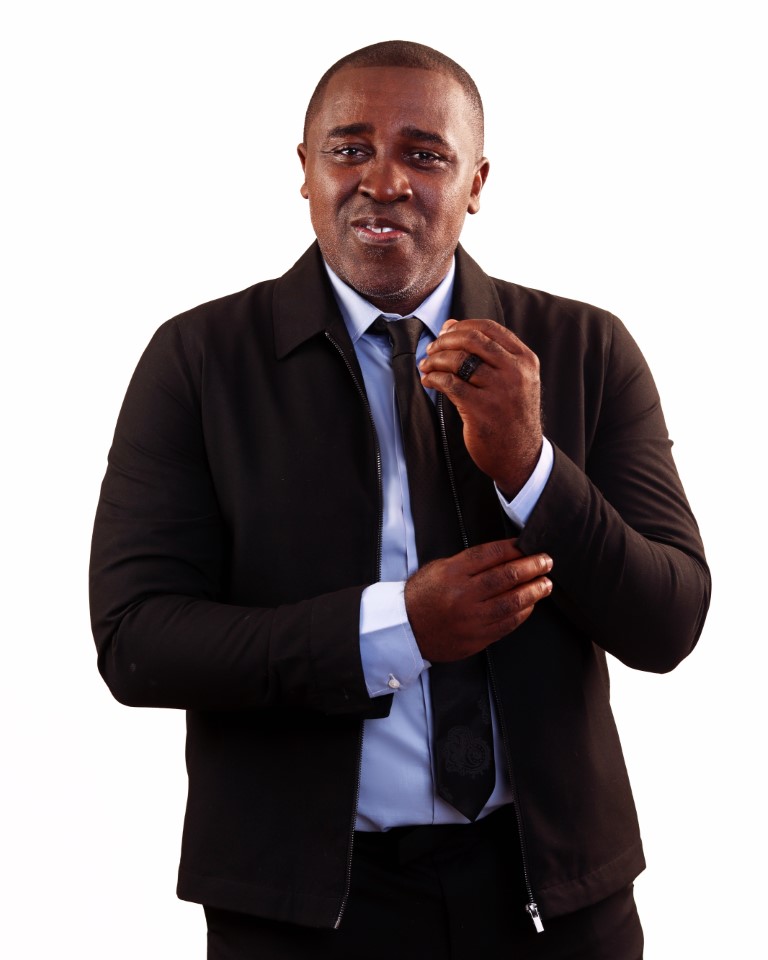
How do you feel coming back on the show?
It is just like déjà vu. You know when you have déjà vu but you know that it is reality, especially with this shoot. Everything is kicking into it. Now I know that it is not surrealistic anymore, it is real, and I’m looking forward to it with bated breath. I’m very excited about it, I am anticipating it, and I know it’s going to be a runaway hit.
When you’re not on Twitter trying to tame trolls, how do you relax?
I watch a lot of movies, series and listen to a lot of music. That’s what I do, I stay a lot at home basically. I’m not an introvert but I don’t like going out. I have all the streaming services, I watch and play football. Studied at night. It was during the pandemic that I learnt Photoshop; I used to edit with Lightroom. I got a colouring certificate online. These are the things I do basically; boring life.
What is a day like in the life of Frank Edoho?
Sit in front of the TV, stay riveted on my TV. It is basically a screen life. If it’s not TV, it’s the computer screen, I’m studying a lot. Most people don’t know how vast the internet is.
Photography: Gift Eghator
@graphedbyblue
Clothes: Frank’s Wardrobe
A lawyer by training, Onah packs over a decade of experience in both editorial and managerial capacities.
Nwachukwu began her career at THISDAY Style before her appointment as Editor of HELLO! NIGERIA, the sole African franchise of the international magazine, HELLO!
Thereafter, she served as Group Editor-in-Chief at TrueTales Publications, publishers of Complete Fashion, HINTS, HELLO! NIGERIA and Beauty Box.
Onah has interviewed among others, Forbes’ richest black woman in the world, Folorunso Alakija, seven-time grand slam tennis champion, Roger Federer, singer Miley Cyrus, Ex Governor of Akwa Ibom State, Godswill Akpabio while coordinating interviews with Nigerian football legend, Jayjay Okocha, and many more.
In the past, she organised a few publicity projects for the Italian Consulate, Lagos, Nigeria under one time Consul General, Stefano De Leo. Some other brands under her portfolio during her time as a Publicity Consultant include international brands in Nigeria such as Grey Goose, Martini, Escudo Rojo, Chivas, Martell Absolut Elix, and Absolut Vodka.
Onah currently works as the Editor of TheWill DOWNTOWN.


